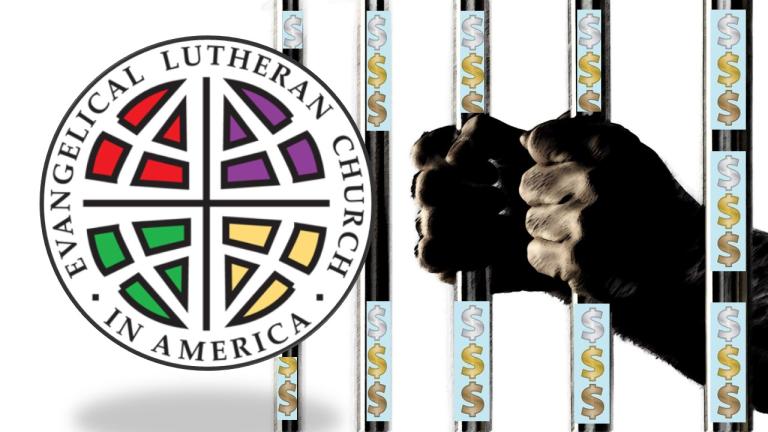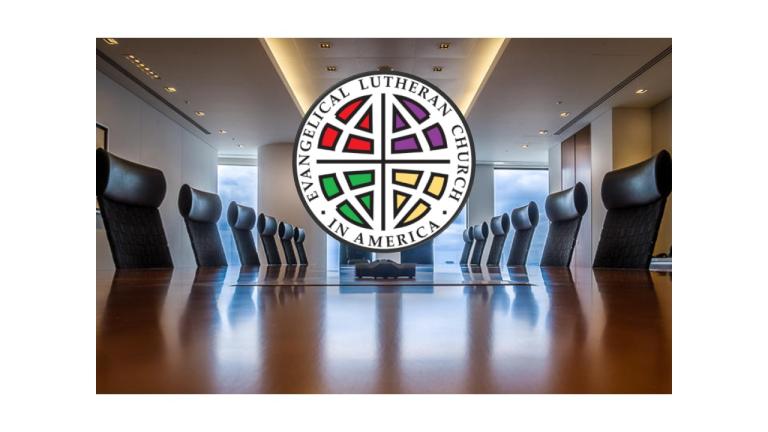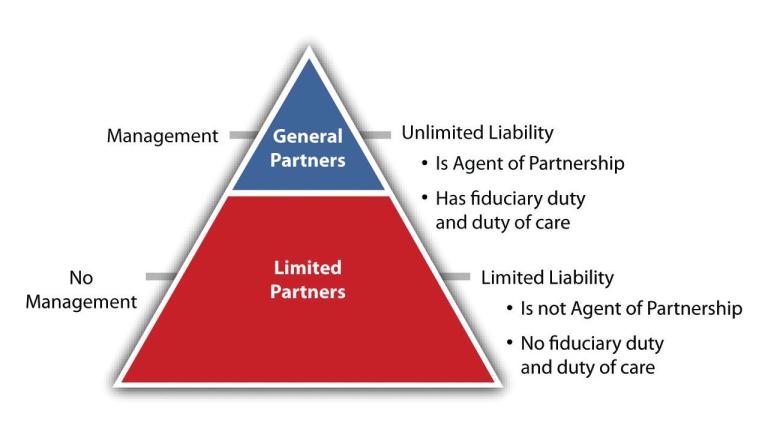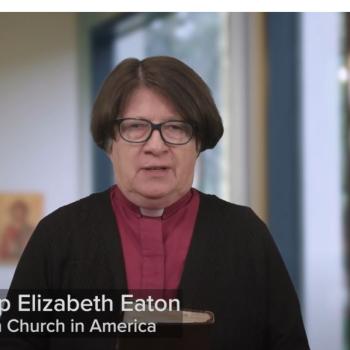The Corporate Captivity of the ELCA

In 1520, Martin Luther wrote a treatise entitled, “The Babylonian Captivity of the Church,”** critiquing Roman Catholic sacramental practice. His scalding indictment focused on abuses of the sacrament that Luther found to be antithetical to Scripture and to Christ’s own words about Holy Communion.
But Luther’s critique of the church wasn’t just about sacramental practices.
His treatise called out the motivation for these abuses. He charged that the church leaders were more interested in making money than in cultivating faith in the promises of God. “This monstrous perversion seems to date from the time when we began to rage against Christian love for the sake of the riches of this world,” he observed (279). Further, he added, “this sacrament has become utterly extinct and the holy sacrament has been turned into mere merchandise, a market, and a profit-making business” (291).
Luther equated Rome’s “miserable captivity” of the sacraments (274) to that of the ancient Babylonians desecrating the land and holy places of the Israelites and taking them into captivity.
For where faith dies and the word of faith is silent, there works and the prescribing of works immediately crowd into their place. By them we have been carried away out of our own land, as into a Babylonian captivity, and despoiled of all our precious possessions (303).
Luther’s treatise was part of a series of writings that took on the whole church system of his time. Five hundred years later, those of us who are members of the Evangelical Lutheran Church in America find ourselves confronting a different church system. Yet, there are eerily similar abuses of power in our own time.
The “spotlight” case has been that of Rev. Nelson Rabell-González, a mission pastor in the Sierra Pacific Synod who was subjected to unsubstantiated allegations of misconduct in May 2021.
Over the course of several months, he was denied due process of the ELCA’s constitutional disciplinary procedure, removed from the Latiné mission congregation he served as pastor and mission developer, and de-rostered by his synod bishop and synod council.
At the same time, revelations have come to light about the negligence, racism, and abuse of power by the previous and current bishops of the Sierra Pacific Synod, former Bishop Mark Holmerud and Bishop Megan Rohrer, respectively. Court documents involving the current bishop even point to financial malfeasance at their previous congregation, Grace Lutheran. All of this raises concerns about the integrity of the bishop election process and the vetting of candidates for bishop. Not to mention the appearance of a double-standard for justice when it comes to clergy of color.
The situation in the Sierra Pacific Synod alone is enough to bring the ELCA to a crisis point. But since I began writing about this case in December 2021, I have received messages nearly every week from people who have shared their own stories of bishops who have abused their power or exercised it in ways that have damaged clergy and congregations. And these are not just recent stories. I’ve heard from people who have recounted their experiences that go back to the denomination’s founding in 1988 and into the early 90s.
In short, what I am learning is that there are foundational cracks in the ELCA that threaten the structural integrity of the denomination. And these foundational issues are due to what I call the Corporate Captivity of the ELCA.
These cracks have largely gone unnoticed by many members. However, some — especially clergy and congregations from historically minoritized communities — have been calling this out and warning us for decades. Now these structural problems are coming into sharp relief as the weight of compounding crises are stressing the system in unprecedented ways.
What I am asserting is that there are systemic problems within the governance and polity of the ELCA that both enabled and led to this crisis in the Sierra Pacific Synod. And that no matter what the outcome is regarding the Presiding Bishop’s “listening panel” for Bishop Rohrer, there are underlying issues that need to be addressed. If we are not honest about these foundational problems — and fix them with urgency — the abuse and corruption may drive this denomination to a breaking point.
Conscientious objection
Already, one congregation, Iglesia Luterana Santa Maria Peregrina (formerly Rev. Rabell-González’s mission congregation, Misión Latina Luterana) has left the ELCA and incorporated as an independent Lutheran Church. Two other congregations – Our Saviour’s Lutheran in Fresno, Calif., and St. Paulus Lutheran in San Francisco – are threatening to withdraw from the denomination in protest and conscientious objection because of what has happened in the ELCA. There are also individual members who have privately told me that they are leaving the ELCA because of what has come to light about the denomination.
The Corporate Captivity of the ELCA: A Case Study

[Full disclosure: I am an ordained minister in the ELCA, and Rev. Nelson Rabell-González is my friend and colleague. I have been accompanying him in this saga for more than a year and have written a series of posts about the situation which can be accessed at the end of this piece. Rev. Nelson has given me permission to publicly quote the documents he has shared with me concerning his case.]
On November 23, 2021, Attorney Mark Bowman sent a letter on behalf of Rev. Rabell-González to Presiding Bishop Elizabeth Eaton alleging that Bishop Rohrer violated the ELCA’s rules governing disciplinary proceedings.
The letter includes eleven examples of Rohrer’s failure and refusal to abide by the ELCA’s Constitution, Bylaws, and Continuing Resolutions (CBCR). Some of these include: failure to follow the ELCA’s procedures for disclosing charges and identifying the accuser(s); morphing the findings of the advisory panel into a cause for discipline; and, inappropriately communicating with Rev. Rabell-González’s mental health provider. In addition, the letter points to the failure of both Holmerud and Rohrer to properly address reports of sexual abuse and harassment of female members of his former congregation, St. Paul in Lodi, Calif., that Rev. Rabell-González reported to each of them in 2021. [You can read the whole timeline here.]
In this letter, Mr. Bowman also raised questions about Rohrer’s history of problematic, controversial leadership in Rohrer’s previous congregation, Grace Lutheran in San Francisco, regarding an Infant Care Center that rented space in the church.
The court case against Rohrer included “breaches of contract, seizure of the sister organization’s funds to pay [Rohrer’s] own salary, leasing the property to another organization in violation of the lease agreement with sister organization, blocking the sister organization from placing required licensing signage for the safety of the children using the daycare service, and revoking the sister organization’s access to their own funds, leading to financial default.” Bowman contended that these charges reveal “a pattern of ignoring proper procedure at the expense of the Synod and ELCA.”
Since then, we’ve learned that Rohrer’s actions were much worse than we first realized.
In this piece, I explain that the court documents reveal fraud, an illegal resolution, voting member disenfranchisement, manipulation, and violation of the church’s Constitution. [Note: these documents are in the public record. It takes some digging, but you can find them here.]
The congregation, exhausted by Rohrer’s bullying and depleted by Rohrer draining their finances with the legal proceedings, agreed on a legal settlement which included the sale of the property. In a bitterly ironic twist, once Rohrer became bishop, Rohrer presided over the “holy closure” on the eve of the sale of the building. Hence, the synod – and, by extension, the ELCA – walked away with a nifty sum of more than $2 million. To use Luther’s words, this was certainly a “lucrative and profitable scheme” (303).
All of this is bad enough. But here’s why this situation is a problem for the Office of the Presiding Bishop.
Even after learning about what Rohrer had done at Grace Lutheran and to Rev. Rabell-González, Bishop Eaton refused to intervene.
In a letter sent to Rev. Rabell-González’s lawyer on Dec. 10, 2021, the ELCA’s General Counsel, Mr. Thomas A. Cunniff, stated that, “the presiding bishop is neither the employer nor supervisor of synod bishops. She does not have the authority to review or overturn the decisions of synod bishops regarding the administration of discipline or roster status, or to instruct (bishops) on how they perform their duties.” Further, the letter states:
One of the few actions the presiding bishop can take against a synod bishop is to initiate disciplinary charges . . . they must be based on one or more of the grounds set forth in CBCR 20.22.01 as constituting misconduct:
a. preaching and teaching in conflict with the faith confessed by this church;
b. conduct incompatible with the character of the ministerial office;
c. willfully disregarding or violating the functions and standards established by this church for the office of ministry of Word and Sacrament;
d. willfully disregarding the provisions of the constitutions, bylaws, and continuing resolutions; or
e. willfully failing to comply with the requirements ordered by a discipline hearing committee under 20.24.08.
Certainly, what Rohrer did to Grace Lutheran and to Rev. Rabell-González were reason enough to take action. There are clearly grounds for initiating disciplinary charges according to b, c, and d.
But Eaton refused to take any action. As a result, just two days after Rev. Nelson received Cunniff’s letter, Rohrer took over the worship service of Mision Latina Luterana on Dec. 12, the day celebrating the Virgin of Guadalupe, after firing Rev. Nelson from his call. That whole racist travesty committed against a Latiné congregation, and the subsequent crises since then, could have been avoided if Bishop Eaton had listened and taken action.
Why didn’t Bishop Eaton intervene?
Mr. Cunniff’s letter stated: “Presiding Bishop Eaton does not perceive any willful violations of the CBCR or any other basis for bringing disciplinary charges against Bp. Rohrer.”
Seriously? If refusing a pastor due process and engaging in financial malfeasance don’t qualify for disciplinary charges, what does?
Further, the letter stated that Rohrer’s past conduct was not “relevant to their handling of the allegations against Rev. Rabell-González.”
On the contrary, I make the case that Rohrer’s handling of Rev. Rabell-González’s case ties directly to their scandalous and possibly criminal behavior at Grace Lutheran. Why? Because Rohrer never disclosed this court case when standing for election as Bishop – while Rev. Nelson was required to disclose the allegations against him. This brings the integrity of the election, indeed, the entire ELCA, into question.
What did they know and when did they know it?
Here’s the self-own in Cunniff’s letter that tells us that Holmerud and Eaton knew about everything:
Moreover, the person who had disciplinary authority over then-pastor Rohrer at the time was Bp. Holmerud; he was well-aware of the lawsuit and the underlying allegations and did not see fit to commence any disciplinary action (emphasis added).
So, Bishop Eaton knew that Bishop Holmerud knew. But Cunniff and Eaton insisted that she has no authority to intervene because “the presiding bishop is neither the employer nor supervisor of synod bishops.”
Therein lies the problem: the Corporate Captivity of the ELCA.
Essentially, the General Counsel’s letter indicates that the ELCA has been designed to function on the model of corporate America. In this model, a parent corporation sets up several limited liability companies in order to avoid any legal obligation if the smaller company is sued.
In my eco-justice work, this is a tactic I have seen used by corporations engaging in environmental pollution. If a person or community tries to sue for damages or restitution, the parent corporation claims it is not liable. The smaller company might be successfully sued, but the larger corporation remains untouched by any legal consequences.

This is how the ELCA appears to be functioning. It’s about protecting the Presiding Bishop and the churchwide office from being sued.
The churchwide office refuses to take any responsibility for the actions of its “subsidiary” bishops — just as a corporation denies any culpability for the actions of its smaller companies. The fact that a lawyer handed down the decision to Rev. Nelson tells us that for the churchwide office, secular law is more important than the gospel.
This being the case, it’s no wonder I’ve received email after email, phone call after phone call from clergy and laity. They’ve wanted to share with me their own stories of the ways they were mistreated by their synod bishop. And that when they appealed to the Office of the Presiding Bishop, their pleas for help were refused.
As it stands, when bishops misuse or abuse their power and authority, there is no recourse for any clergy, or lay person, or congregation in the ELCA.
The ELCA appears to function like a collective of medieval fiefdoms wherein the bishops are like feudal lords. They have unlimited, unchecked power to do whatever they want to whomever they want. They do this without fear of admonishment or consequences. Why? Because the Office of the Presiding Bishop simply washes its hands of any culpability like Pilate standing over a basin of cool water.
To be clear, I am not saying that all bishops are corrupt or abusive. I’m saying that the system makes it possible for a situation like the Sierra Pacific Synod’s case to happen.
I also want to be clear that the ELCA’s stated intention of its organizational structure is very different from its practices.
The ELCA describes its churchwide organization as a church body “organized in three expressions — congregations, synods, and the churchwide organization.” Each expression has its particular functions. However, “all three together share a common mission of doing God’s work in the world and proclaiming the good news of Jesus Christ. Together, they ensure a solid foundation of leadership, active involvement in communities, opportunities for dialogue and diverse perspectives, creative partnerships, and support for members and ministries of the ELCA.” (https://elca.org/About/Churchwide)
Unfortunately, the ELCA’s stated intentions do not align with its practices. Time and again, we have seen that the “common mission” is broken.
This brokenness is due to the fact that, following the advice of attorneys, legal walls have been built between the three expressions of the church until they are hardly recognizable.
These walls are buttressed on an assumption that led to the the refusal to investigate the accusations against Rev. Nelson Rabell González. And to de-roster him. And the decision of the ELCA’s leadership to initially give Bishop Rohrer’s conduct a pass.
The assumption is that the gospel of Jesus Christ and the institution of the ELCA will be fine if we just “move on.”
The only reason Bishop Eaton decided to convene a “listening panel” in the case of Bishop Rohrer was because of the collective outcry sustained over the course of three months from across the ELCA about the egregious, racist actions of Bishop Rohrer on December 12th. Just imagine if Rev. Nelson had chosen to keep quiet about what had happened to him. And if his supporters had not continued to tell the truth about the ordeal he and his congregants have undergone. The whole situation would have been quietly swept aside in the hopes that everyone would simply forget.
But we cannot just “move on” from this, no matter the outcome of the listening panel.
Up until this situation with Bp. Rohrer, the Conference of Bishops adhered to a code of silence. Traditionally, they have refused to publicly criticize misconduct or hold each other accountable. Perhaps it never crossed their minds that a fellow bishop would so flagrantly abuse their power such as we have witnessed in the Sierra Pacific Synod.
But what is the point of having a Constitution if we’re not going to adhere to it? Moreover, why are there double and triple standards for applying justice when it comes to clergy and congregations and the bishops who rule them?
Tragically, there appears to be a willingness to let pastors and congregations be the sacrificial lambs so as to protect the church’s power structure.
This is especially true when it comes to historically minoritized clergy and congregations. They are the ones who suffer the most within this system.
Now we are seeing the compounding consequences of these decisions. More license is given to bishops while the institution of the ELCA is irreversibly weakened. The truth is that the gospel of Jesus Christ has been violated by the actions of the ELCA and the Sierra Pacific Synod. And the denomination will not be fine by just “moving on.” The ELCA will not survive more license being given to those at the top of our system. If we keep giving Rohrer and others a pass, the denomination won’t survive the abuses of power. Nor will it survive the negligence of those who refuse to hold the powerful accountable.
“But, but,” some may sputter, “Why do you want to attack the very structure of the ELCA?”

Martin Luther imagined a similar question coming from his critics.
But you will say: “What is this? Will you not overturn the practice and teaching of all the churches and monasteries, by virtue of which they have flourished all these centuries? For the mass is the foundation of . . . their fat income” (305).
And here was Luther’s response to those who wanted to silence him as a theological whistleblower of ecclesial abuse:
For it is in this manner that the sacred testament of God has been forced into the service of a most impious traffic. It has come through the opinions and ordinances of wicked men, who, passing over the Word of God, have dished up to us the thoughts of their own hearts and led the whole world astray. What do I care about the number and influence of those who are in this error? The truth is mightier than all of them (305).
So, with this same commitment to truth-telling, here’s what we need to face.
The fact is, we won’t survive the compounding abuses to our system. We need investigations, truth-telling, and accountability all the way up and down our system. This needs to happen, no matter how profoundly it may challenge and even fracture our denomination. And we need to make changes in our policies. Things such as stopping the use of non-disclosure agreements. Not treating mission pastors and congregation as second-class citizens. And adhering to our Constitutional procedures when it comes to accusations of misconduct – whether against a pastor or a bishop.
The actions of the ELCA based on a white, corporate, colonialist, elitist model have clearly failed. Investigations, truth-telling, and accountability are the only way to heal our denomination and enable it to survive.
In the meantime, both those who have abused their power and those who looked the other way or engaged in the cover-up would do well to heed Luther’s warning: “Get busy and defend yourselves against the charges of impiety, tyranny, and lése-majesté against the gospel, and the crime of slandering your brethren” (280).
For those of us with a responsibility to raise our voices against injustice, we had best consider these words from Martin Luther.
I have faithfully warned you, and I will be without blame on the day of judgment; you will have to bear your sin alone. I have said what I was bound to say to you as brother to brother for your salvation; yours will be the gain if you observe it, yours the loss if you neglect it. And if some should even condemn what I have said, I will reply with the words of Paul: ‘But evil men and imposters will go on from bad to worse, deceiving and being deceived’ (II Tim 3:13) (311).
Luther warned us once. His warning still rings true today.
**Source: “The Babylonian Captivity of the Church.” Martin Luther, 1520. Martin Luther’s Basic Theological Writings. Edited by Timothy F. Lull. Minneapolis, MN: Fortress Press, 1989.

The Rev. Dr. Leah D. Schade is ordained in the ELCA. She does not speak for the ELCA; her opinions are her own. She is the author of Preaching in the Purple Zone: Ministry in the Red-Blue Divide (Rowman & Littlefield, 2019) and Creation-Crisis Preaching: Ecology, Theology, and the Pulpit (Chalice Press, 2015). She is the co-editor of Rooted and Rising: Voices of Courage in a Time of Climate Crisis (Rowman & Littlefield, 2019). Her latest book, co-written with Jerry Sumney is Apocalypse When?: A Guide to Interpreting and Preaching Apocalyptic Texts (Wipf & Stock, 2020).
Twitter: @LeahSchade
Facebook: https://www.facebook.com/LeahDSchade/
The Saga of Rev. Nelson Rabell González
Part One: The Removal of Rev. Rabell-González: A Case Study in ELCA Corruption and Racism
Part Two: ELCA Fires Whistleblower, Rev. Nelson Rabell-González
Part Three: The Day an ELCA Synod ‘Disappeared’ Pastor Nelson Rabell-González
Part Four: The NDA, the Church, and the Attempt to Silence Rev. Nelson Rabell-González
Part Five: Why the ELCA Needs to Investigate the Case of Rev. Nelson Rabell-González
Part Six: Pastor Nelson’s Wife Speaks: The Year of Pain
Part Seven: Rev. Nelson Removed from ELCA Rostered Ministry. Now What?
Part Eight: 6 Reasons Why Rev. Nelson Rabell-González was Denied Due Process
Part Nine: Sierra Pacific Synod Attacks Rev. Nelson – and Indicts Itself
Part Ten: Accusations and Racist False Flags: Rev. Nelson’s Saga is not Unique
Part Eleven: Bishop Rohrer and Rev. Rabell-González: The ELCA’s Double, Triple Standard
Part Twelve: Remove Bishop Megan Rohrer? Follow the Pattern, Follow the Money
For a complete compilation of all documents, blogs, commentaries, and posts from all parties about the situation in the Sierra Pacific Synod, visit this website created by Shruti Kulkarni: https://whathappenedinthesps.weebly.com/. This website compiles communications relating to the controversy for accountability, clarification, and ease of access.













